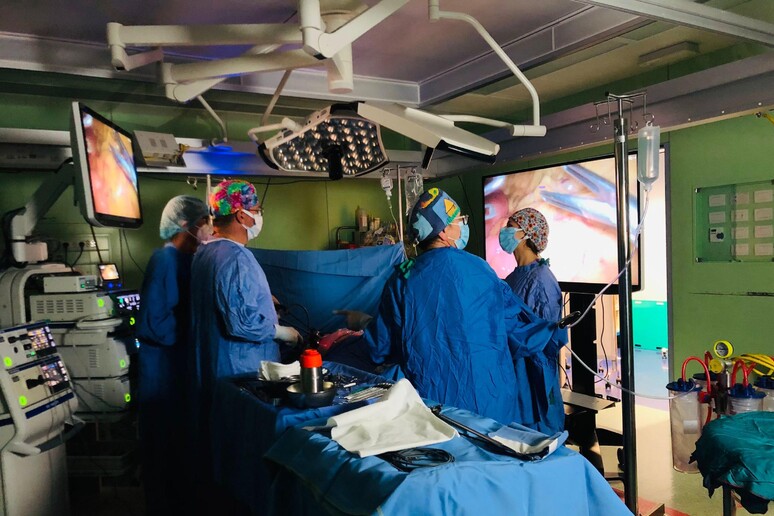An international registry for the
study of sudden cardiac deaths in youth, which, following the
Friuli Venezia Giulia model, will be extended to regions in the
Balkan area. Generating knowledge and life through the study of
families and the in-depth study of hereditary disorders. This is
the commitment with which the many scholars gathered in Trieste
for the first international congress on sudden cardiac death
organized by ASUGI and the University of Trieste greeted each
other and agreed to meet in Skopije on September 25, 2025 for
the second edition. There are 160 professionals, cardiologists,
sports physicians, geneticists, and pathologists from all over
Europe, physicians in specialist training from different
disciplines, and students from the University of Trieste's
medical degree program. There are many sponsorships from Italian
and international scientific societies (North Macedonia,
Serbia), the Foreign Ministry and the Ukrainian Ministry of
Health. The discussion in Trieste was opened by Mary Sheppard,
among the world's leading cardiac pathologists and former
president of the European Cardiovascular Pathology Association.
Succession of three specialized round tables composed of
pathologists, geneticists and cardiologists addressed the topic
of sudden cardiac death in youth in all its components,
complexities and family implications. Data were presented from
the FVG Registry, promoted by Gianfranco Sinagra, ASUGI
Cardiothoracovascular Dept. Director, and Alessia Clocchiatti in
legal staff at the FVG Health and Social Policies Department and
developed and Coordinated by Stefano D'errico Director of
Forensic Medicine. Large multidisciplinary staff from across the
region. From January 2021 to September 2024, 122 cases were
enrolled, of which 42 in the province of Trieste alone, studied
according to the rigorous protocol envisaged by LR 26/2020
following the guidelines of the International Scientific
Societies and including a complete and detailed autopsy
examination, study of the heart by MRI, complete toxicological
profile, and genetic study to search for pathogenic mutations
for cardiomyopathies and arrhythmogenic channelopathies.
Pronounced prevalence for the male sex in FVG as well, with
prominent involvement of the third and fourth decades of age
compared with those before. 72% of recorded cases occurred at
home, mostly in the absence of symptoms preceding the event.
Coronary myocardial pathology underlying 40% of all causes of
death, followed by substance abuse, often taken with alcohol or
psychotropic drugs. Genetic testing was requested in 15 cases to
document genetic mutations relevant to inherited cardiovascular
disease: family members were enrolled in a qualified first-level
cardiology checkup at cardiology centers in the region, with a
collaborative spirit among cardiologists, forensic physicians,
pathologists, geneticists, radiologists, and with informative
feedback to family physicians. An unprecedented epidemiological
heritage will be formed to which continuity will be given with
the support of regional institutions. Ample space will be given
to young researchers, competing for the best poster award. The
scientific committee chaired by Mary Sheppard and Yanko Kolev,
President International Academy of Forensic Sciences, selected 3
contributions for originality and importance of data, submitted
by young researchers from Serbia and Slovenia. Award of Merit
was given to Lorenzo Pagnan, UCO Diagnostic Radiology Cattinara
Hospital, for contributing to the project and presenting results
on 90 cardio-RM examinations performed between 2021 and 2024 at
the ASUGI Imaging Dept.
ALL RIGHTS RESERVED © Copyright ANSA





